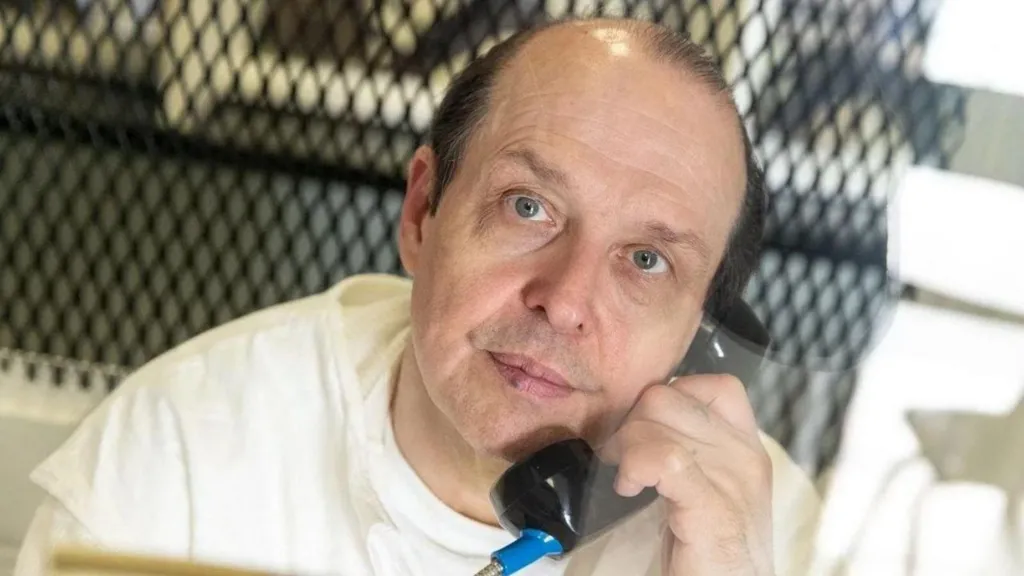Judge in 'shaken baby' death penalty case steps down

Robert Roberson was convicted of murdering his 2-year-old daughter but claims he is innocent
- Published
The execution of Robert Roberson - a Texas man who was convicted of killing his two-year-old daughter – faces further delay after the judge in the case voluntarily recused herself.
Roberson was set to be the first person in the US to be executed for a murder related to "shaken baby syndrome", but the execution was paused at the last minute in October amid a public outcry and legal wrangling among Texas lawmakers.
Judge Deborah Oakes Evans previously signed a death warrant for Roberson, but it expired in October, and on 25 November she filed a court order stepping down from the case.
No reason was given for her recusal.
Roberson has long maintained his innocence. He was originally sentenced to death in 2003 for the murder of his daughter, Nikki Curtis.
A post-mortem examination found she died of injuries from abuse but Roberson says his daughter fell out of her bed and when he returned hours later she was not breathing.
Medical staff at the emergency room where he took her immediately suspected abuse. But Roberson's lawyers argued his daughter had been prescribed medicines that are no longer given to children because they can cause serious complications and that, along with the fall, was the cause of her death.
Over the years, there have been many legal fights over a potential execution, especially as questions about "shaken baby syndrome" have grown, and members of the public, including author John Grisham, have pleaded for it to be called off.
With the judge's recusal, it is now up to a district attorney to decide the next move.
Judge Evans presided over several hearings in the case, including one to consider new evidence in 2021, but ultimately decided against ordering a new trial.
An appeals court agreed there was insufficient evidence to overturn Roberson's conviction and the US Supreme Court declined to hear the case. Judge Evans retired, but then came out of retirement to sign Roberson’s death warrant, the last step before an inmate can be put to death.
The execution by lethal injection was scheduled for 17 October.
Then, in a surprise turn, a bipartisan group of state lawmakers issued a subpoena for Roberson to testify in a hearing on that date That led another judge to temporarily delay the execution.
Last month the Texas Supreme Court ruled the subpoena cannot block the execution, once again clearing the way for Roberson to be put to death.
But a date has not been set and Judge Evans’s recusal has cast further doubt on whether Roberson will be executed in the near future.
Robert Roberson's execution can resume, Texas Supreme Court rules
- Published15 November 2024
Robert Roberson's testimony is delayed after dramatic death row reprieve
- Published21 October 2024
The BBC contacted Allyson Mitchell, the district attorney in Anderson County, Texas, for comment.
Gretchen Sween, a lawyer for Roberson, said in a statement that she hopes recent developments "will prompt the district attorney to pause before pursuing an execution date, a matter that is entirely in her hands."
Ms Sween called on the district attorney to meet with defence lawyers to re-examine the evidence in the case.
"Shaken baby syndrome" - now called abusive head trauma - is usually diagnosed after finding evidence of retinal haemorrhage, brain swelling and bleeding in the brain.
While the diagnosis is broadly accepted by the medical community, a recent report highlighted the need to thoroughly examine other causes before concluding injuries were due to abuse.